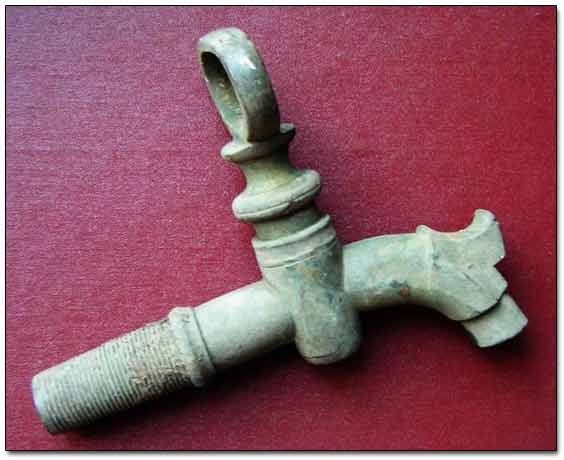Metal Detecting WW2 Relics In Pskov Region, Western Russia
In the morning, I was woken up by the sound of rain drops hitting our tent. Fortunately, the rain was just sprinkling, otherwise we would get soaking wet because Pavel had forgotten to bring the plastic tent cover along.
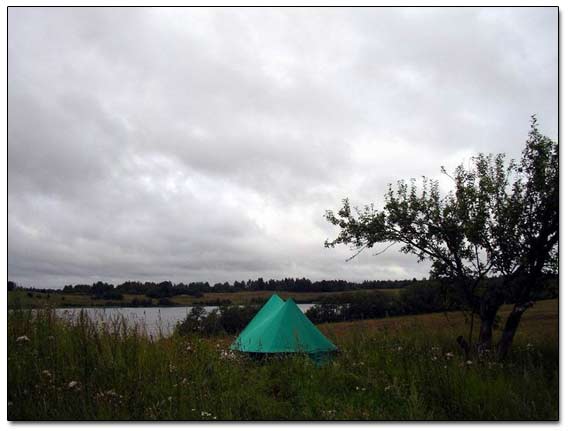
I hoped the tall grass would not get too wet. That could be a big problem. As soon as I thought that, the rain stopped. A small boat appeared on the lake as the fishermen were quickly pulling their nets out of water.
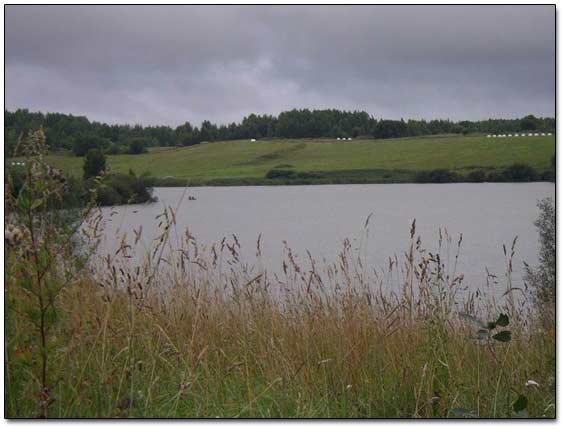
I renewed our campfire to get some warmth and make my breakfast. As usual, it was a mix of instant noodles and canned meat, with a cup of hot tea.
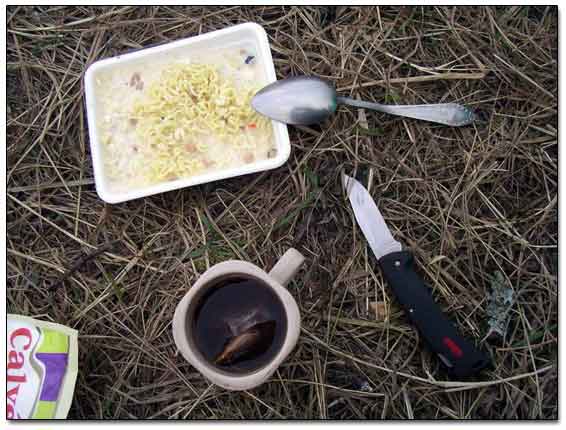
After breakfast, I felt so content that I climbed back into the tent and went back to sleep. We all got up at 2 PM after we had slept for a total of 15 hours. The weather had improved: the rain clouds were not in sight and there was a lot of sunshine. That was time to start metal detecting.
As I was the only one with the machine, we decided that Andrei would cut the grass, Pavel would gather the grass and take it away, and I would metal detect at the cleared spot. I chose a flat spot near an old foundation and we went to work.
Andrei Is Clearing A small Patch For Metal Detecting
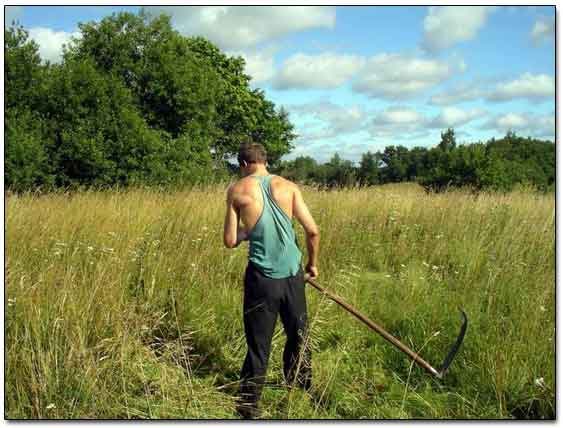
Right after we started, I received a big iron signal. I was just about to cut the plug when I noticed that there was a plug already set back into its place! I flipped the plug and there they were in the hole: a coiled iron chain, a large fragment of artillery projectile, and other iron junk items.
I carefully looked around and, yes, there were other holes with large iron objects left in them. Someone had searched the site before us! The only hope was that my advanced Explorer XS would pick up some deep "leftovers."
I asked Andrei to cut the grass at a different spot on another side of the hill. He did, and we found a few dug holes there as well. But I was still receiving many signals, only they were all produced by the WWII military junk relics: brass casings for K98 German rifle, smaller iron fragments of artillery projectiles, brass splinters, etc.
Then I realized that this hill, a site of the village, was also a good strategic point, a defense position, during the World War II battles. I also noticed the remains of trenches dug long ago on the perimeter of the site. Situated at high elevation, this point overlooked a vast area, therefore, was probably hard to defeat during the battle. And it seemed that a heavy fighting took place here.
I also realized that whoever had metal detected here before was not a coin shooter. That person was a Military Relic Digger who usually would seek WWII weapons, personal gear and trench art items, and other valuable military artifacts left at the sites of WWII battlefields. The military relic diggers use the deep-seekers (two-box VLF detectors like the Garrett GTI 2500 depth multiplier or the Whites TM 808) instead of the traditional metal detectors. That is why they had dug up only large objects. After I had discovered a couple of freshly dug holes, I concluded that we had settled down for the night right at their camp site.
Andrei suggested us to try one more time at the spot that was away from the trenches. We agreed and moved to the old apple orchard. We badly wanted to find an old coin or an artifact.
Andrei had not cut the grass for more than five minutes, when we heard a snapping sound - Andrei broke a blade of the scythe! That was it for us! Darn! Nevertheless, I checked a small patch where the grass had been cut and received a nice signal. Everyone could not wait to see what it was.
I cut the plug, and a nice brass spigot fell out of it. Wow! Both Pavel and Andrei got ballistic! I was excited too but... for just a second-my camera's batteries had died and I could not take a picture of either my friends' excited faces or a cool find.
After I Cleaned It
